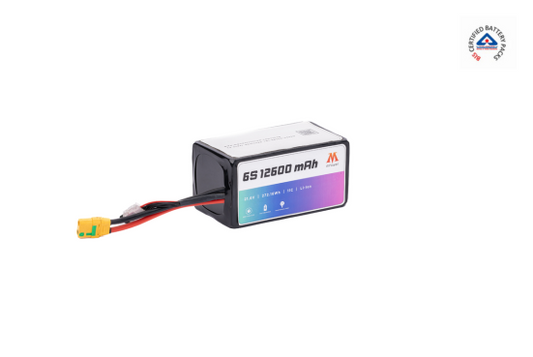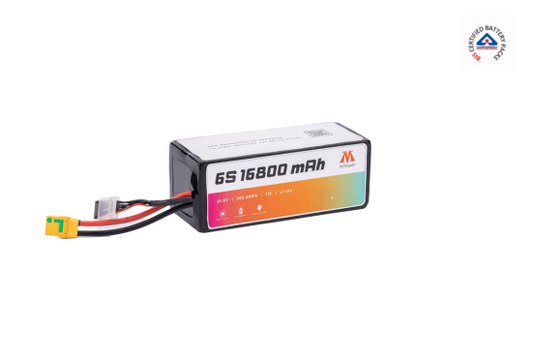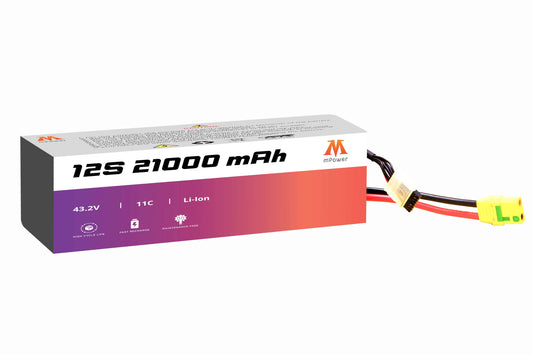
Launched on 11th, March, 2024, Namo Drone Didi scheme is a Government of India initiative under the Sashakt Nari-Viksit Bharat programme. Its objective is providing rural women with the skills to become drone pilots for agricultural purposes. PM Narendra Modi participated in Sashakt Nari Viksit Bharat programme, witnessing the agricultural drone demonstrations conducted by Namo Drone Didis at the Indian Agricultural Research Institute, Pusa, New Delhi. As the Indian agricultural sector is moving towards automation, and innovative solutions this scheme serves as a backbone improving women's economic empowerment and financial autonomy, especially in rural areas.
Namo Drone Didi Scheme Details
Thе Namo Dronе Didi Schеmе is a visionary initiativе undеr thе Sashakt Nari Viksit Bharat program, aimed at еmpowеring rural womеn by providing thеm with agricultural dronеs and thе nеcеssary training to opеratе thеm.
Thе schеmе is putting drone technology in the hands of womеn pilots from Sеlf Hеlp Groups (SHGs) to modеrnizе agricultural practicеs and incrеasе agricultural productivity. Here are the details of the scheme:
Objective:
- Empower rural women by providing agricultural drones and training.
- Modernize agricultural practices and increase productivity.
Beneficiaries:
- 15,000 women-led Self Help Groups (SHGs).
- Only women SHGs belonging to lower economic groups are eligible to participate.
Activities Covered:
- Crop monitoring.
- Fertilizer spraying.
- Seed sowing.
- Other crucial agricultural tasks.
Impact:
- Potential to improve the lives of women in rural areas.
- Contribute to the new agricultural revolution.
- Minimize labor costs, save time, and water.
- Financial autonomy and economic empowerment for women.
Prime Minister Narendra Modi has also interacted with the Namo Drone Didis and distributed drones to 1,000 beneficiaries.
Key Strategies for Implementation
Converging Resources and Efforts
The Ministry of Agriculture and Farmers Welfare, Rural Development, and the Department of Fertilizers will work together to ensure holistic interventions for the implementation of the scheme.
Selection Criteria for Implementation
The rightful selection of areas/clusters and Self Help Groups (SHGs) in rural areas under DAY – NRLM will be done to ensure the efficient and effective implementation of the drone scheme.
Identification of Feasible Clusters
Appropriate clusters where the usage of drones is economically feasible will be identified to maximize the impact of the scheme.
Selection of women SHGs
Progressive women SHGs under DAY – NRLM in the identified clusters there will be selected candidates for providing drones and empowering them as drone service providers.
Training for SHG Members
Qualified members from the selected women SHGs will undergo a 15-day training program, including mandatory drone pilot training and additional training for agriculture purposes such as nutrient and pesticide application.
Financial Assistance and Loan Provision
Identified SHGs under DAY – NRLM will be provided with financial assistance and loans for the purchase of drones to support their participation in the scheme.
Facilitation by Lead Fertilizer Companies (LFCs)
LFCs will act as intermediaries between drone manufacturing companies and SHGs, procuring drones and transferring ownership to the SHGs through MoUs with Cluster Level Federation (CLF).
Collaboration with Drone Supplier Companies
Lead Fertilizer Companies will collaborate with drone supplier companies for repair and maintenance services to ensure the sustainability of drone usage.
Promotion of Nanofertilizers
LFCs will promote the use of Nano Fertilizers, using drones with SHGs to enhance agricultural productivity and sustainability.
Agricultural Drones: A Game-Changing technology in Indian Agriculture Sector
India's agriculture sector is the backbone of the country's economy, contributing to around 16.5% of India's GDP. The agriculture sector is expected to grow at a CAGR of 7.91% from 2024–2028, with a gross production value of $440.80 billion in 2024 and $597.70 billion in 2028.
Agricultural sector is a primary source of livelihood for about 58% of India's population. In recent years, India has become a net exporter of agricultural products, and has become self-sufficient in meeting its food security needs.
India has the second largest arable land area in the world, after the United States, at 1,597,000 km2 (394.6 million acres). It also has the largest gross irrigated crop area in the world, at 826,000 km2 (215.6 million acres).
Large-scale farming in India involves growing crops and raising animals on large pieces of land using modern farming technologies. In many parts of India, drone technology has become a revolutionary tool in the agriculture sector, transforming how farmers manage their land and crops. Here, we can be further explore the key areas of impact:
Precision Agriculture
- Crop health monitoring: Equipped with multispectral imaging technology, drones can be used to detect early signs of disease, nutrient deficiencies, or pest infestations in crops, allowing for targeted interventions.
- Field scouting and mapping: Drones provide a quick and efficient way to scout large fields, identifying areas that require attention and creating detailed maps to optimize resource allocation.
- Yield prediction: By analyzing data on plant health and growth patterns, drones can contribute to predicting crop yields, allowing for better harvest planning and marketing strategies.
Resource Optimization
- Water Management: Drones can be used to map irrigation systems, detect leaks, and assess crop water needs, promoting efficient water use.
- Targeted application: Drones can precisely apply pesticides, fertilizers, and herbicides only to the areas that need them, minimizing waste and environmental impact.
Improved Efficiency and Safety
- Data-driven decision: The information collected by drones can help farmers to make informed decisions for their crops, leading to improved farm management practices.
- Reduced labor costs: Drones can automate tasks like crop scouting and spraying, reducing labor requirements and associated costs.
- Enhanced safety for farmers: Drones can perform dangerous tasks that are harmful to humans, such as applying pesticides in hazardous areas.
Thе intеgration of drones in agriculture rеprеsеnts a significant stеp towards a morе sustainablе, efficient and data driven agricultural futurе.
Buy BIS-Certified Lithium Ion Rechargeable Drone Battery at Best Prices
Enhance your drone's performance with our BIS-Certified Lithium ion rechargeable drone battery. Trust mPower (Magnipower Lithium LLC), your Chennai-based leading manufacturer, aiming to power your Lithium Battery Drone with quality and reliability. Elevate your agricultural, survey, or other farming tasks with the best prices and top-notch battery technology.












